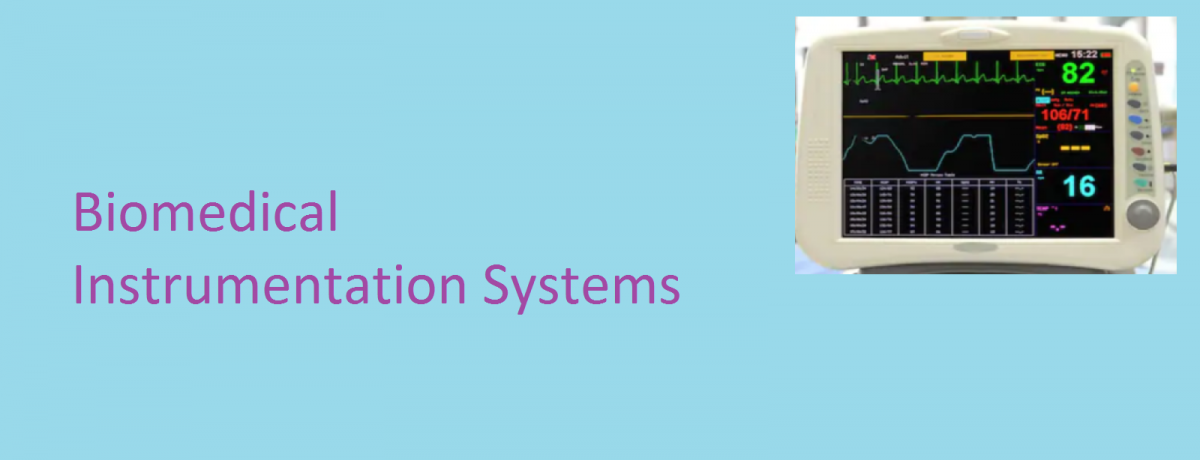Bioinstrumentation involves the measurement of current or voltage signals from the different parts of the body. The measurement of various physiological signals produced by the body helps in diagnosis and treatment of diseases. In actual fact, when we talk about … Read More
Category: Basics of Biomedical Instrumentation Systems
The Introduction to Biomedical Instrumentation Systems. Some of the areas covered include: The sources of biomedical signals, Performance requirements of biomedical instrumentation systems, factors to consider when designing biomedical instruments, etc.
5 Types of Biomedical Instrumentation Systems

We have the following five types of biomedical instrumentation/measurement systems:
- Direct/Indirect
- Invasive/Non-invasive
- Contact/Remote
- Sense/Actuate
- Dynamic/Static
Direct/Indirect
In biomedical instrumentation we may have the sensing system measuring a physiological parameter directly, such as the average blood flow in an artery or … Read More
5 Established Isolation Architectures for Medical Isolation Amplifiers
Medical isolation amplifiers provide an ultra-low conductive pathway between the input (patient) terminals and the output terminals and ground. This pathway provides what is called ohmic or galvanic isolation for a patient. In medical applications, this isolation is required for … Read More
Biosignals Data Acquisition
Biological signals are often very minute and typically contain unwanted interference or noise. Such interference has the detrimental effect of obscuring relevant information that may be available in the measured signal. Noise can be extraneous in nature arising from … Read More
How Liquid Crystal Sensors are used in Biomedical Measurements
The principle of operation of liquid crystal sensors is based on the fact that liquid crystals change their state in such way that they modify passive scattering or absorption of light. As the crystal melt, the three-dimensional order becomes a … Read More
The Essential Requirements of Biopotential Amplifiers for Medical applications
Biopotential amplifiers are also termed to as Bioamplifiers. Bioelectric measurements are normally low-level voltages with high source impedances therefore signal amplification is essential part of biomedical measurement systems. The signal amplification is needed to boost or increase the strength of … Read More
The Functions of Signal Conditioners in Biomedical Measurement Systems
In a Biomedical measurement system, the electrodes pick up the bioelectrical potential whereas the transducer converts the physiological signal to be measured into a usable electrical output. The outputs from the Bioelectrodes/transducers are then converted into an electrical quantity that … Read More
Types of Amplifiers used in Biomedical Measurement Applications
Signal amplification is essential part of any biomedical measurement. Bioelectric measurements are usually low-level i.e. microvolt level measurements, therefore amplification is required to boost the level of the input signal to match the requirements of recording/display systems or to match … Read More
Key Performance Requirements of Effective Biomedical Instrumentation Systems
The information obtained from a medical sensor or transducer is usually in form of current intensity, voltage level, frequency or signal phase relative to a standard.

We look at some of the performance requirements considered in biomedical instrumentation systems as … Read More
Key Factors to Consider when Designing Biomedical Instruments

Some of the important factors that are considered when designing a medical measuring instrument include:
- Patient safety considerations –Since medical instruments have to be physically connected to the patient, there is the possibility of an electric shock hazard in cases

